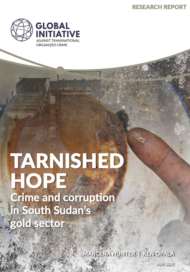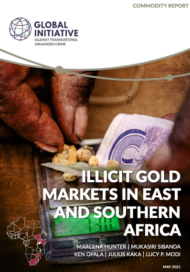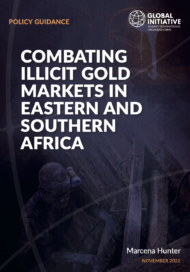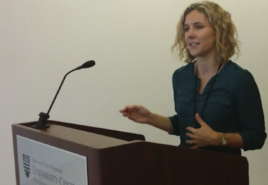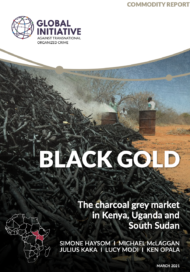Posted on 31 May 2023
Artisanal and small-scale gold mining (ASGM) offers a multitude of positive development outcomes for communities and the broader population when practised responsibly and with transparent access to global gold markets. However, under the control of kleptocratic networks and foreign nationals jockeying for position to maximize profits, the gold sector in South Sudan is currently characterized by corruption and criminality.
It is difficult to estimate the amount of gold produced in South Sudan. Neither the Ministry of Mines nor the Ministry of Trade and Industry have data on the country’s gold production or trade. The secretive and high-risk nature of investigating the sector makes it almost impossible to assess the scale of production or value of gold flows. However, there are strong indications that millions of dollars’ worth of gold is being produced and smuggled out of the country.
Although legal and regulatory frameworks exist, significant shortfalls in enforcement have kept the sector informal and unregulated. These shortfalls can be attributed to a mix of limited capacity, tension between national and state authorities, and corruption. Violence and insecurity have discouraged mineral exploration and the growth of a formal gold mining sector.
Meanwhile, political elites and well-connected businesspeople are accused of deliberately mismanaging or abusing political authority and mining policy to shore up power and profits. Political elites and members of the security apparatus are alleged to partner with foreign nationals in mining ventures, resulting in an opaque sector that is shielded from any form of investigation.
This study was informed by field research in South Sudan, Uganda and Kenya carried out between December 2021 and March 2022. Over 80 interviews were conducted across the three countries. Owing to security risks, research in South Sudan was limited to Juba and Kapoeta, and their environs. Interviews were conducted with a broad spectrum of stakeholders, including miners, gold traders, civil society, government officials and the media. The study also builds on the research that informed the 2021 GI-TOC report ‘Illicit gold markets in East and Southern Africa’
